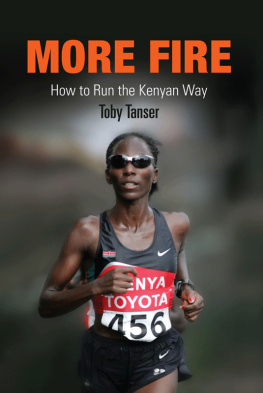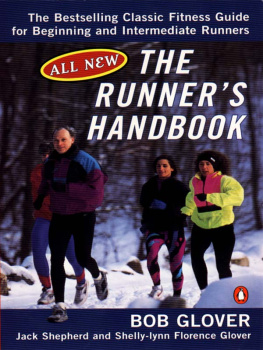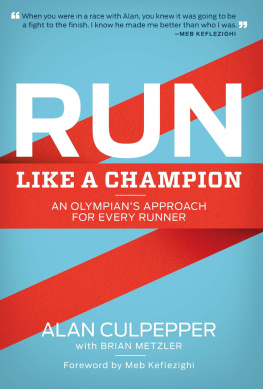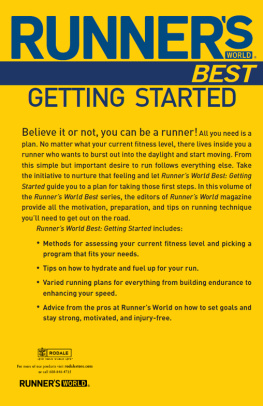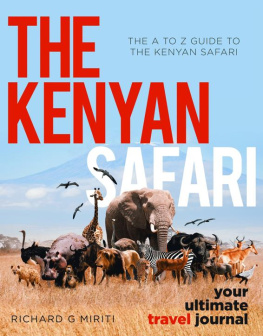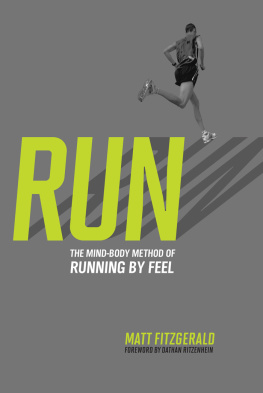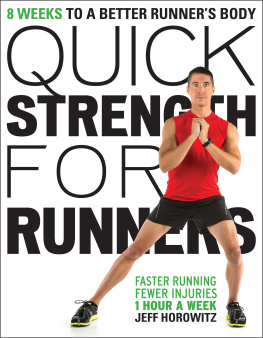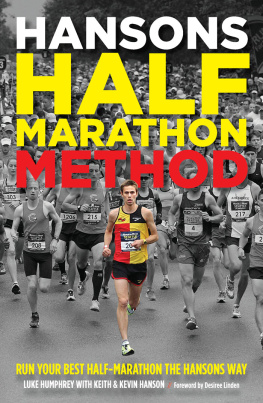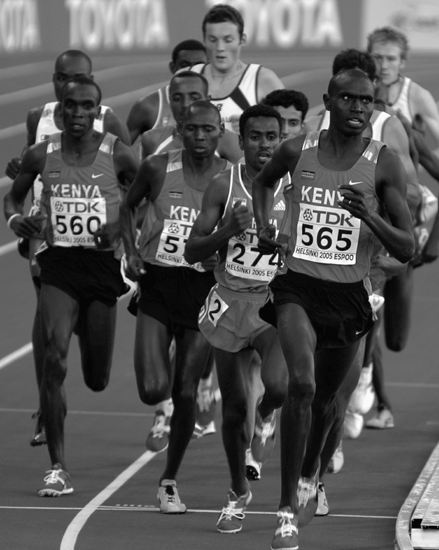
MORE FIRE
How to Run the Kenyan Way
Toby Tanser

Frontispiece: Benjamin Limo leads in helsinki. Isaac Songok and Eliud Kipchoge (#560) in pursuit. (Flanagan/PrettySporty)
2008 Toby Tanser
All rights reserved under International and Pan-American Copyright Conventions. No part of this book may be reproduced in any form or by any electronic or mechanical means, including information storage and retrieval systems, without permission in writing from the publisher, except by a reviewer who may quote brief passages in a review.
Westholme Publishing, LLC
Eight Harvey Avenue
Yardley, Pennsylvania 19067
Visit our Web site at www.westholmepublishing.com
ISBN: 978-1-59416-526-9 (electronic)
Also available in paperback.
Produced in the United States of America.
To the Runner: Begin with having a compelling dream, burn with desire to succeed. Your watchword is discipline and your password is perseverance. More painful than stumbling, as we all must, is to have never strode out. At the end of the run, at the close of the day, you will remember not the results of a position or stopwatch, but how intensely you tried, and at what velocity you lived in your life. Run, and live, with More Fire.
All of the author royalties from this book go directly to building a childrens hospital in Kenya.
Toby Tanser knows and understands Kenya, its land, its people, and most of all, its magnificent runners. As an elite runner and coach, he shows us what we can learn from the Kenyan training camps to improve, enrich, and inspire our own running.George A. Hirsch, Chairman of the Board, New York City Marathon
The best thing Ive read, because it is so direct and factual. Bruce Tulloh, coach, author of the Complete Distance Runner
Quite simply the best book on running I have ever seen. Read MoreFire.Moses Tanui
If you want to know how we do it, then read Tobys book. Here are all the recipes for our success.Ezekiel Kemboi
Toby opened his heart to Kenya, and as you will read, this is beyond a mere running book. This is Kenya.Moses Kiptanui,
This is the book on Kenyan running. He lived with us, ate with us, and trained with us. This is our story.Sally Barsosio
The whole Kenyan way of training in one book.Jackson Kabiga
Contents
Introduction
To learn the principles of physics one looks to the unchanging laws of Newton; to study how to optimize your running, it would be foolish to dismiss the methodology of the worlds finest runners. This book may not be riddled with fandangled formulas of lactic acid and percentages of your pulse rate, however it is a book that teaches, tells stories, makes documentation of a history far passing athletics, is visual and beyond about a running nation and its memorable people.
The advice, theories, and ideas of the runners in this book are pure genius. I may be biased but I think we can learn more from the running in Kenya than the laboratories in the West.
The title of this book comes from a misty morning in Eldoret, Kenya, at a time before the Sun had risen. A group of men stood at a lofty thin altitude of 2000 meters ready for an 18-kilometer foot race. Perhaps the best conditioned aerobic athletes the world could offer on this given day. Athletes who can elevate that central muscle we call a heart, tell it to beat to its utter maximum, then run like the very Gods for a full 26.2 miles.
They had known about this race for two weeks, and everyone was prepared to their best. There were no members of the press present, no prizes on offer, and no spectators to applaud their efforts, or offer words of encouragement.
The start was a mere quick shout command and the men accelerated, kicking dust on the dirt road that would provide less than perfect footing for speed as they flew along the undulating path, in rhythm with life. Robert Cheruiyot, the tall 4-time Boston Marathon winner was easy to pick out with that powerful stride as he immediately took the lead, punishment promised with each of his flicking footsteps, flames blazing in those spiritual eyes. Martin Lel ran over the ground as if he was a ballet dancer, nimble and defined running like Lel the Gazelle three-time London Marathon, two-time ING New York winner should do. Patrick Ivuti was up there, the reigning Chicago Marathon winner whose life had begun when running to collect firewood as a determined youngster, Boston runner-up James Kwambai who had paced and pushed Gebrselassie to his marathon world record... the names combined would have bankrupted any major marathons budget for appearance fees alone.
As the dawn broke the runners were now silently sweeping passed many unassuming folk walking to work. Nobody cheered these Kings of Kenya, no one even glanced at the steeds of fire who raced onward at tempo. With their chests roaring for oxygen they hold pose seemingly without fatigue, as they continued to push, hurling their bodies forward at an alarming swiftness, defying all barriers of threshold and despair.
At 17-km the group was still packed together, the Honolulu champion Jimmy Muindi is the only one with apparent labored legs. This race is a fast moving journey to wrench the body past its mortal restrictions, it starts with the recognition that pain is the validation of accomplishment. Each one of this dozen or so runners renews their faith daily when they afflict the doubts and torment their limbs in a quest to be the very best they can, best beyond the minds own pitiful limitations.
When the sun rises over the equator it does so with a quick and sharp brilliance. As flashes of golden sunlight lit Martin Lel it sparked certain acute acceleration to his lithe legs; he distanced himself from the pack by a clear 100m before the competition had a chance to adjust their stride, running himself blind and covering the final kilometer in a staggering 2-minutes 30-seconds pace. Impossible speed exists in Kenya.
Talent does not ensure success; each triumph has to be earned. What was truly grueling to tolerate is now reward for Lel. His first words, with a smile, he tells all, Thats More Fire!
The Kenyan Way
In the senior ranks, there were well over 500 sub 2:20 performances in 2006 by Kenyan marathon runners, far greater than any other nation. Britain, with roughly double the population of Kenya, had eleven sub 2:20 men in 2006. 20 of the top 30 fastest times in 2008 so far are by Kenyan men. The current marathon world champion Luke Kibet and William Kipsang, who tried to qualify by running the eighth fastest time ever at the marathon four months prior, were not able to make their national 2008 Olympic team, but in the final week before competition, Kibet was added as a reserve. In the 1988-2007 World Cross-Country Championships there have been 291 individual medals on offer; Kenyans have taken 134 medals. If you look at the medals on offer for males, the number is 147, and Kenyan runners took 86 of those medals, 58.9%. Kenyan women are following. Never in one single sport has one country dominated the way Kenya has, and does, in distance running.
This is one small country against the rest of the world. One nation that, in recent years, has also lost a good number of its best athletes to other countries. Where life expectancy hovers between 45 and 48 years depending on whose reports you follow, and where the population is only around 34 million. Where poverty, disease, and desperation are the median and more people than not live on less than $2 per day. Where mere literacy and education are a luxury never taken for granted. That was turned upside down in 2008 by extreme riots and destruction. And, against all the odds, this indigent country, in the sport of the Gods, still reigns supreme.

